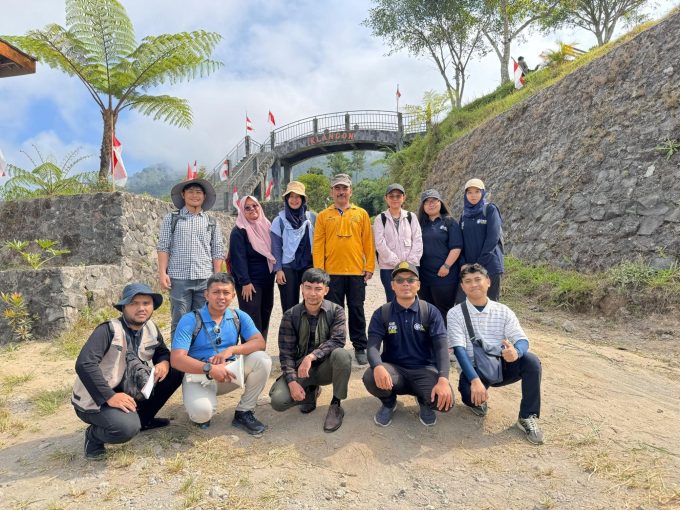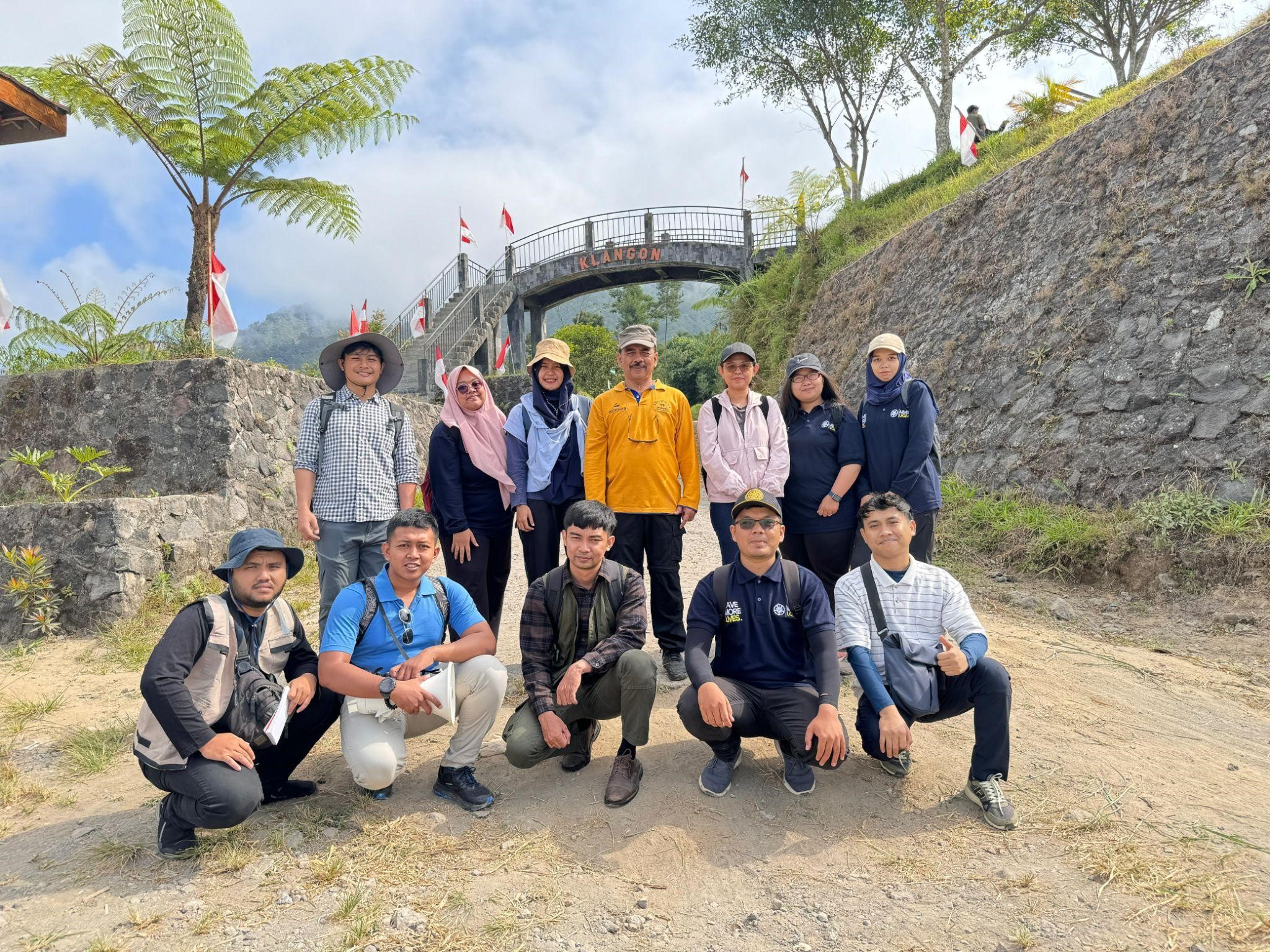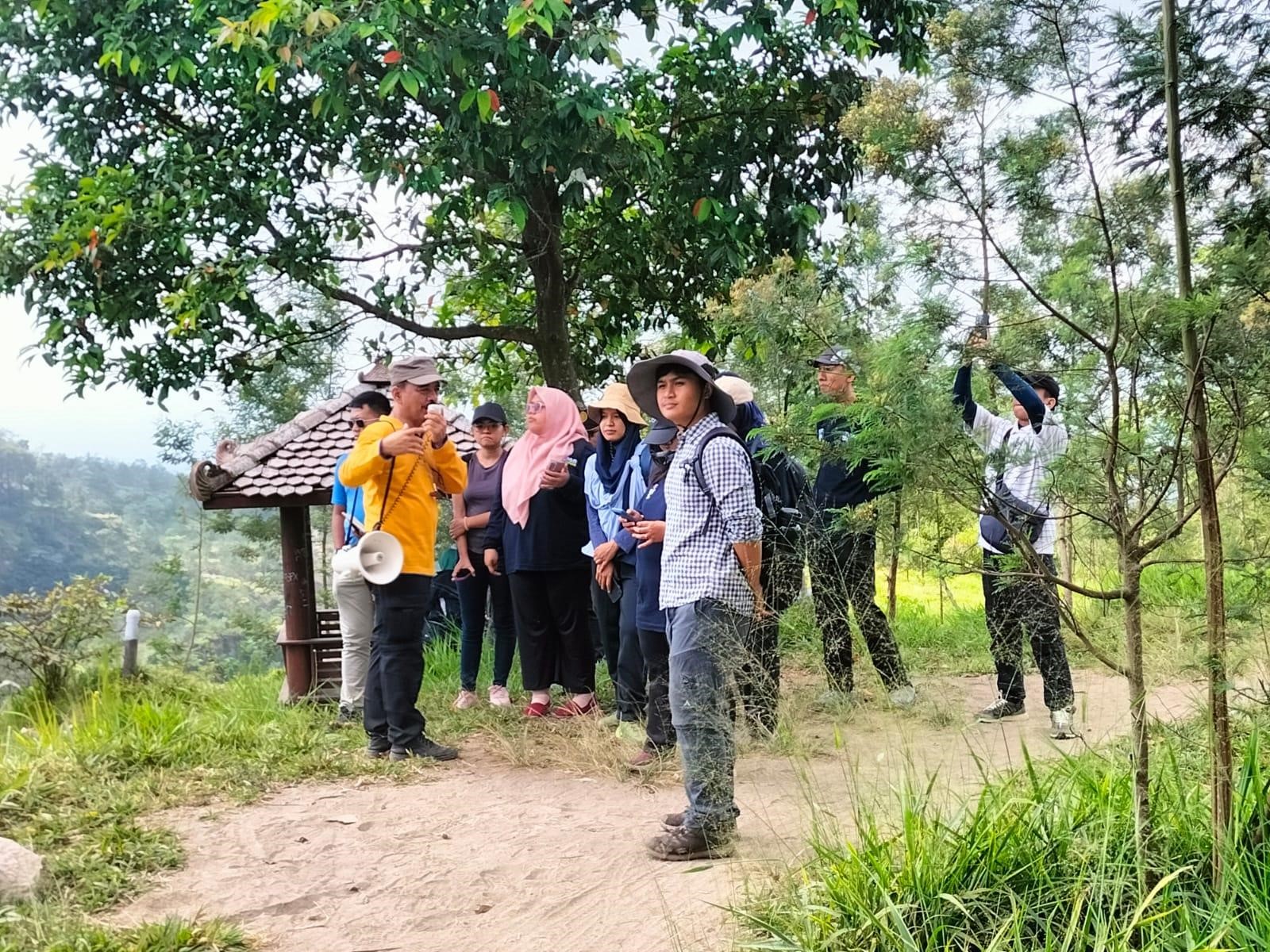
Students from the Master’s Program in Disaster Management (MMB) for the 2023 Even Semester and 2024 Odd Semester at the Graduate School of Universitas Gadjah Mada (UGM) undertook a field study on Saturday (August 31) focused on multi-disaster management at various key locations in Yogyakarta. The sites included Bukit Klangon, Kali Talang, Sleman Volcanic Park (Bakalan Open Museum), the SABO dam, Candi Sambisari, Transmission Station, and Geological Outcrop Ngoro-oro.
The activity was led by Prof. Dr. rer. Nat. Junun Sartohadi, M.Sc., the lecturer for the Multi-Disaster Management course. The objective was to provide practical knowledge and hands-on experience in disaster management. By visiting several locations, students were able to directly explore natural sources and analyze strategies applied in real-world disaster management and risk reduction.
The exploration began at Bukit Klangon, where students learned about the geological features contributing to the area’s vulnerability to volcanic eruptions. Continuing to Kali Talang and Sleman Volcanic Park, students engaged in discussions about the role of water management in disaster risk reduction and explored the historical context of volcanic eruptions in the region.
At the SABO dam, students observed engineering solutions designed to control sediment and manage water flow during heavy rainfall. Meanwhile, the visit to Candi Sambisari, an ancient temple site, allowed students to reflect on the importance of disaster management in a cultural context. At the Transmission Station, students learned about the critical role of energy resilience in disaster management. Maintaining a power supply during emergencies is crucial for effective response efforts.
The Geological Outcrop Ngoro-oro was the final destination for observing geological formations and their implications for disaster risk. Understanding earth processes can help predict and manage disasters, and this site served as a practical classroom for students. “The need for comprehensive education in disaster management is crucial for equipping future leaders with the skills needed to effectively reduce risks. Such activities are vital for sustainable development and resilience to natural disasters,” said Prof. Junun.
Data: Pri Juwandi
Author: Asti Rahmaningrum


